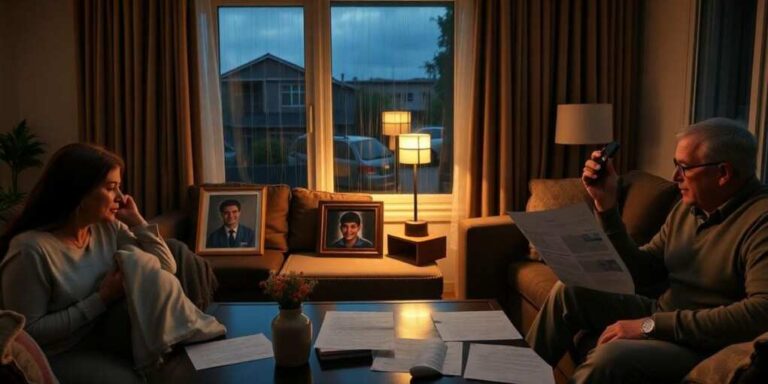
Canada granted Markus Schouten a final wish. He wanted no child to face a choice between life and death.
He learned he was dying in a Vancouver hospital. He spoke with calm purpose to his parents.
“That’s because life is worth living and we should always work to alleviate suffering without eliminating the sufferer,” Markus wrote in a letter to Parliament.
“Life is worth living, even when we are dying.”
He passed away weeks later with family at his side. His last words were gentle and full of hope.
“See you in paradise.”
His parents, Mike and Jennifer, now warn lawmakers about a global industry. They argue it targets the vulnerable instead of helping them live.
“As we continue to expand the euthanasia regime, all the safeguards and windows have gone out the window,” Mike Schouten said.
“And it becomes open season for anyone to choose death, including children.”
A growing network brands assisted suicide as “dignity” and “choice.” It spans Europe, North America, and Oceania with dozens of groups and large budgets.
Some nations already allow minors to die by physician-assisted suicide. The Netherlands, Belgium, and Colombia have moved past adult-only limits.
In Canada, the pressure grows each year. Leaders considered extending access to “mature minors” despite public concern.
The same push is advancing in the United Kingdom. A narrow vote signaled real momentum for broader access.
Parents see the legal door marked “mature minor.” Activists want to push children through it without the parents’ consent.
British educator Katharine Birbalsingh issued a blunt warning. She leads a respected London school and sees teen struggles daily.
“Assisted suicide will spread, full stop,” Katharine Birbalsingh said.
“And the people allowed to do assisted suicide will grow, making it younger and younger.”
She argued the West forgot a basic duty. Adults must lead and protect children from impulsive harm.
“Once upon a time,” she said, “adults used to say, ‘No, the child is not capable of leading, because he is a child.‘ In the West, we have forgotten that we’re meant to be in charge as adults.”
She described why youth are at risk. Their brains are still developing and easily swayed.
“There’s just a million reasons why young people would want to choose death,” Katharine Birbalsingh said.
“You know, young people are compulsive, they make whimsical decisions. They make irresponsible decisions. They’re young. That’s sort of the definition of a child.”
“That’s why they need looking after,” she added. “That’s why we need to look after them as adults. That’s our job. It’s our role in life, to keep and protect them, sometimes from themselves. The people making these decisions just don’t understand young people.”
British Labour MP Meg Hillier raised similar objections. She focused on teen vulnerability and outside pressures.
She said teen brains are “susceptible to being influenced, including into dangerous and risky behavior.”
“In a number of countries, assisted dying laws have been expanded to allow children and young people to end their lives. We need to be alert to that very real risk.”
Northern Ireland MP Sorcha Eastwood warned about social media’s toll. She said the trend could damage a fragile generation.
“If we throw this into the mix, it has the potential to do untold damage.”
Numbers show the stakes. In the Netherlands, euthanasia rose to thousands of cases in one year.
One Dutch teen with autism described life as “joyless” and “lonely.” A doctor judged him competent and proceeded.
In Canada, a famous children’s author made headlines. He has dementia and said a shocking line on approval.
“Hello, Doc — come kill me!”
Markus’s family remembers his clear words from their living room. He wanted lawmakers to protect children, not end their lives.
They still carry that message to leaders worldwide. They say children deserve time, treatment, and hope.
They ask adults to hold the line. They ask governments to put safeguards first and stop the slide.
Parents see a movement cloaked in polite words. Behind it sits a market, a machine, and a target on youth.
Markus left a final truth to guide them. It speaks louder than euphemisms or slogans.
“Life is worth living, even when we are dying.”
